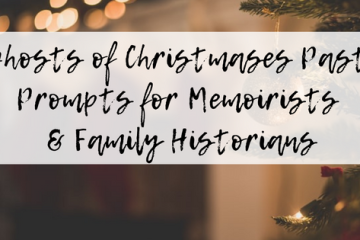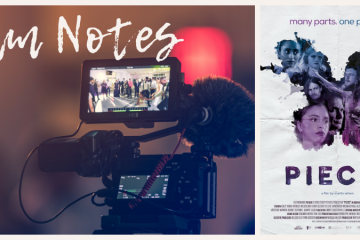Sarah’s Story: Journeying with Grief after the Loss of a Child
The fragility of life was slammed home last month when a fellow HeartKid family lost their three-year-old son, Xander, suddenly and unexpectedly. His parents, Craig and Sarah Nicholls, held a moving memorial service beside a lake. At their request, family and friends wore bright colours. The sun shone, birds sung and children blew bubbles. The day was a celebration of having loved this cheeky live-wire and a space to express the grief of losing him.
I wanted to somehow honour Xander and his family, but everything I wrote seemed trite, cliched. So I turned to another friend, Sarah Spooner, who has traversed her own journey through grief when her son drowned just before his second birthday. Here is her story, which offers support to anyone who has lost a child, and practical tips for those wishing to walk beside them.
Sarah’s Story
Thirty two years ago, I gave birth to a beautiful boy, our first child, Richard. He was our world. Six weeks after our second child, Harriet was born, Richard tragically died. Our world was torn apart. We lived moment by moment in a fog of despair. We lost another little one at four months pregnant. This gave us hope that Richard had a little sister in heaven with him. We went on to have two more children, Tom and Milly.
We left England shattered and only just holding our fragile lives together. We desperately wanted to give our children a happy life and hoped Australia would be a new start for all of us. It was hard to leave Richard’s grave but we knew we had to build a better life.
As we ached in our grief, we received some well-meaning advice that at best was unhelpful and at worst was downright hurtful.
How Not to Offer Support
People told us, ‘You’re lucky you’re young enough to have another one,’ and ‘At least he was young.’ It just wasn’t true. It’s devastating to lose a child, regardless of the circumstances or his age.
A well-meaning relative said, ‘What you have to do is only think of him on Monday, Wednesday and Friday.’ And my doctor told me, ‘Take down the photos of that dead child.’ But you can’t flip a switch about when you do and don’t think about your child; it is all I thought about.
‘Life goes on,’ wasn’t a useful adage either. For the bereaved parent, life stands still. I watched life go on for others, but I was stuck. I basically had to learn to live again. We didn’t eat properly for weeks, and I couldn’t drive for six months as my concentration was shot.
And it’s better to say, ‘I don’t know how you feel,’ rather than suggest someone else has it worse or stating, ‘I wouldn’t be able to survive that.’ We didn’t have a choice; we survived because we had to.
We became Christians about a year after moving from England to Australia, and our faith helped us enormously. God took us apart gently replacing all our faulty coping mechanisms. This was certainly painful but restorative. He healed us of the constant despair and dread of the future. However, at the time of Richard’s death, we received a letter from a local church saying, ‘What you need is Jesus. He will help you.’ I found these words offensive and insensitive. I tore up the letter and threw it in the bin.
The most hurtful thing was not words, but the actions of friends who crossed the street to avoid us. Others gathered to support one another through the tragedy of Richard’s death, but ostracised us, his parents.
How You Can Offer Support
Although we lost some of our best friends, others stepped forward. We had ‘cancelled’ our first Christmas after Richard died, but a couple invited us over for smoked salmon and champagne. We visited but declined staying for lunch. I sat on the couch next to their two-year-old as he unwrapped a toy helicopter. I cried and cried, and my friend didn’t tell me to stop. Then she spilled wine on my lap so that I had to borrow some clothes and stay for the meal while she washed mine. Smoked salmon and champagne is now a precious Christmas tradition.
Another friend came over every Tuesday, week after week. She brought her two children, which contrary to what you might think, was just the chaos I needed rather than the neat, ordered space my home had become after Richard’s death. She just let me cry and didn’t judge me.
Don’t underestimate the power of simply being there. Don’t feel you have to fill the silence or offer advice. Just listen. Really listen.
It was really important to have my words and feelings validated, to feel loved and not judged or told, ‘You shouldn’t feel like that.’ Everything a grieving parent feels is true for them at that moment, even if you don’t understand. And it changes. Ten days after Richard died, I decided I couldn’t go on and counted out the sleeping tablets. My husband, TJ, said, ‘Ok, we’ll do it, but one day someone will say to our daughter that your parents didn’t love you as much as they loved Richard.’ That stopped me, but if he’d said, ‘Don’t be stupid,’ I would have done it on my own.
Instead of avoiding any mention of the child, include them. A friend asking, ‘When did Richard get his first tooth?’ meant a great deal because she involved my child rather than acting as though he never existed.
I would liked to have saved a locket of his hair. This might seem a strange thing to suggest, but a locket of hair is a tangible thing you can have forever. I wish someone had told me that.
I used to walk into the supermarket and tell myself, ‘There’s another bereaved parent here. She’s in here and you’re in here. You’re not alone.’ I wouldn’t know who she was but there was some comfort in knowing that I wasn’t the only one.
One of the most important things is time. The risk is to think, ‘You should be over it now.’ Some people think that six weeks is the magical time frame. Others think a year. But the second year is just so hard. You never get over it, although we eventually learned to live a different kind of normal. There came a point when I was stronger, more compassionate, more loving than if I hadn’t experienced this, but I was never glad it happened.
While there were some people who spoke and behaved in unhelpful ways, there were many who provided wonderful support and gave us hope. As a way of paying it forward, I now make myself available to support and encourage anyone walking a similar path. As a bereaved parent, it can be comforting to talk with another bereaved parent.
Richard would have turned 32 on 15 October just gone. We talked about him and cried a little; however, we will also rejoice in the life we have now. We are proud of our other children, and delight in our precious grandchildren. But we will remember Richard forever.






This is a great post by your friend. Thanks for sharing. I find comforting knowing that another mother has survived the loss of their child. It is a tough and long journey that none of us want to take.
Thank you for taking the time and courage to respond to this post – Sarah will be so glad that her words may have helped you in some small way. And I will be certainly be thinking of you as you continue to walk this road.
What a great post and so true, I’m only at the beginning of my journey but I can already relate to a lot of her post.
Thank you for sharing your own journey over on your blog, Sharon. What a lovely way to remember your daughter. I already wish I’d had the privilege of knowing Orla Rose. Let me know if you would like me to add in a link to your blog, so that others might know they are ‘not the only one’.
[…] Ben and want to know how to support them, or know someone else who has lost a child, you can read Sarah’s story about what helped her after the death of her […]